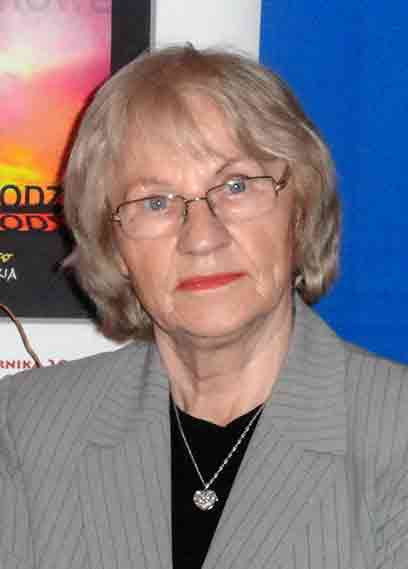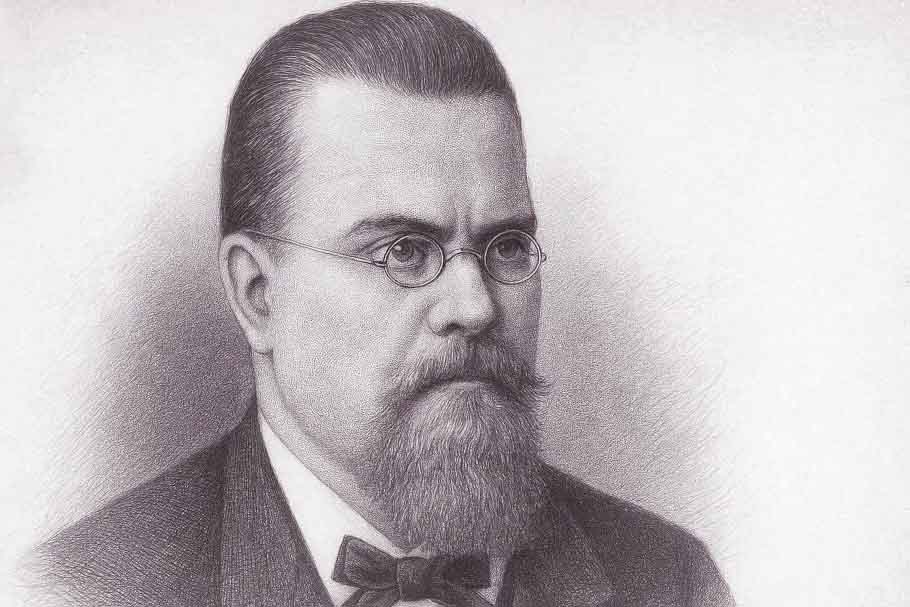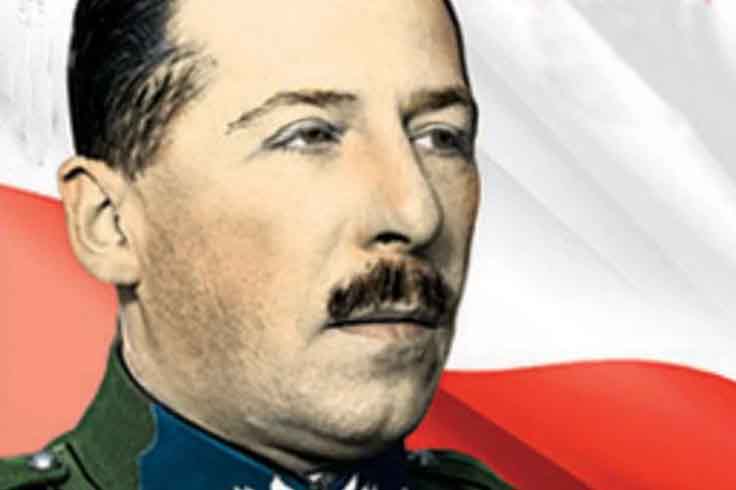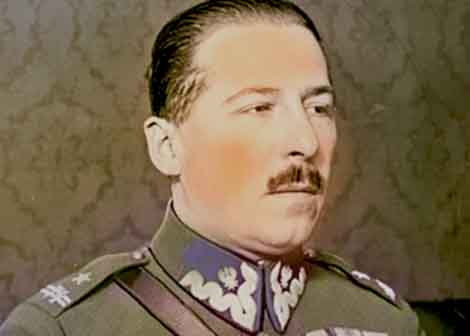Following the life of Tadeusz Katelbach, I wondered how it was possible that, a hundred years after the country was erased from the political map of the world, those born would change that map, restore its proper outline, and alter the course of history. His story is proof that patriotism is not defined by documents or birthdates, but that the nation lives on in its people, in those who identify with it.
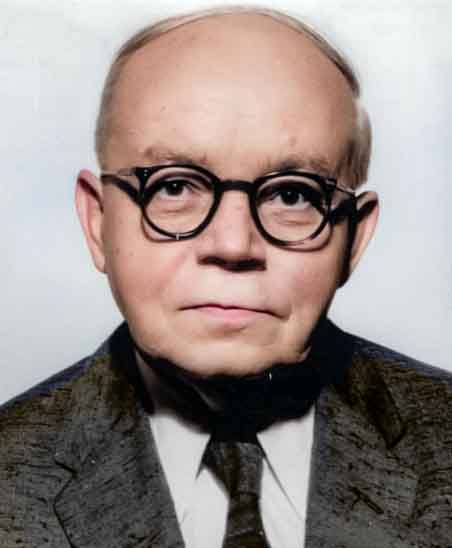
Tadeusz Katelbach (Source: Wikipedia/A.Wozniewicz)
Tadeusz Katelbach was born on February 24, 1897, in Warsaw, then still in the Kingdom of Poland, which formally belonged to the Russian Empire. Everything that followed in his life would be dictated by his patriotic duty as a Pole—a man who, with his heart and soul, belonged to an officially nonexistent nation.
From an early age, he was involved in organizations dedicated to restoring the existence of the Polish state.
While studying at Wojciech Górski High School in Warsaw, in 1910 he joined the clandestine Union of Progressive Independence Youth. In 1913, he became a member of the Riflemen's Association. After the outbreak of World War I, from August 1914, he became a member of the Polish Military Organization (POW) and the Union for the Repair of the Republic.
In 1915, when the Russian army left Warsaw, the German occupation authorities permitted the opening of a Polish University of Warsaw. Tadeusz Katelbach was one of the first to begin studies at the Faculty of Law and State Sciences at the University of Warsaw in November. In addition to belonging to existing organizations, he joined the Polish Youth Union "Zet." He was a very active member, one of the leaders of the 1917 student strike at the Warsaw University of Technology.
From November 1918 to March 1919, he participated in the battles against the Ukrainians for Lviv. Due to their youth, bravery, and dedication, history has given these participants the nickname "Lviv Eaglets." Subsequent generations honor them by lighting memorial candles at the graves of the fallen in a special section of the Lychakiv Cemetery in Lviv.
After brief training in the 36th Warsaw Infantry Regiment, in August 1919 the Polish Military Organization (Polska Organizacja Wojskowa, POW) assigned Tadeusz Katelbach to organize the Sejny Uprising, which erupted against attempts by the Lithuanian administration to seize power in the region. After the so-called General Szeligowski Mutiny, he officially held various civilian positions as a journalist, diplomat, and civil servant, but worked closely with the Second Department of the General Staff of the Polish Army. Until the end of 1920, he was editor-in-chief of the Gazeta Wileńska.
In 1922, he spent several months in the Free City of Gdańsk. In January 1923, he left for Berlin, officially as editor-in-chief of the Dziennik Berliński and correspondent for the Poznań-based Przegląd Poranny and Wieczór Warszawski, but in reality as a confidential representative of the Union for the Defense of the Western Borderlands at the then-forming Union of Poles in Germany. In 1923, he served as a direct liaison between the Union of Poles in Germany and Warsaw. At the end of 1923, he returned to Poland and worked for a year in a bank in Warsaw. He was a close and trusted associate of Commander Józef Piłsudski and Foreign Minister Józef Beck. He was informed of plans in advance and was able to take appropriate action.
In November 1925, he was sent officially as a correspondent for the national press, and in fact as a resident of Polish intelligence, to Geneva, Switzerland, considered a hotbed of various intelligence agencies. He returned to Warsaw on the eve of the May Coup.
Following the May Coup and a meeting with Józef Piłsudski, he became an advisor to the Polish government at the Union of Poles in Germany in January 1927. The main goal of his mission was to centralize the Polish movement in the Weimar Republic. He left Berlin after six years, on August 2, 1933, to follow political developments in Kaunas as a correspondent for the Gazeta Polska. Poland and Lithuania did not maintain official diplomatic relations between 1920 and 1938. Unofficially, he served in lieu of diplomatic services and explored the possibility of establishing normalized diplomatic relations between the warring countries. The death of Marshal Piłsudski prevented the successful completion of his mission.
After returning to Poland, he headed the film department of the Polish Telegraphic Agency and even became involved in building the Polish film industry. In the November 1938 parliamentary elections, he was elected to the 5th term of the Senate of the Republic of Poland from the Lublin Voivodeship. During his term as senator, he resided in Warsaw.
In 1939, following the German invasion of Poland, on September 12th, he was appointed plenipotentiary to organize the Ministry of Propaganda's information and press office in Bucharest. On September 14th, at the district office in Zaleszczyki, he met with politicians opposed to the Sanation government: Stanisław Stroński, Henryk Strasburger, Aleksander Ładoś, August Zaleski, and Tadeusz Tomaszewski. All of them would hold important positions in the government appointed in France by General Władysław Sikorski. Katelbach himself would reach Paris on October 6th, 1939, and would be assigned to the Polish Ministry of Information and Documentation. He would remain in this position until the British government withdrew its recognition of the Polish Government-in-Exile.
Seeing no prospects for life in communist Poland, he remained in exile. From 1945 to 1956, he lived in London and worked diligently to reconcile and unite Polish émigré circles, which had been divided into two camps since 1947, gathered in two alternative "parliaments": the Political Council (comprising the opposition) and the National Council (appointed by President August Zaleski). To this end, he collaborated with the then-respected General Kazimierz Sosnkowski, who had come to London from Canada for this purpose. The unification program he co-created assumed the abolition of de facto parliamentary dualism, the concentration of foreign policy in the hands of constitutional state bodies, and the appointment of General Sosnkowski as President Zaleski's successor. Due to the deep divisions, the unification effort failed.
In June 1955, T. Katelbach left for Munich, where he began working with Jan Nowak-Jeziorański at the Polish section of Radio Free Europe. In January 1956, he was hired as a full-time employee at RWE. After retiring in July 1965, in December of that year, he left Munich with his wife and emigrated to the United States, where he settled with his family (including his wife and daughter) in New York.
He published extensively in the émigré press and participated in the social life of the Polish American community. He is fondly and respectfully remembered by his friends and colleagues as a direct, warm man. After the death of his friend Jan Fryling, he said words that should provoke us—in the third decade of the 21st century—to act: "We must move on, after all, and there are fewer and fewer of us."
Seriously ill with diabetes, he died of a heart attack while awaiting surgery on November 9, 1977. He, his wife, and his daughter are buried at the Powązki Cemetery in Warsaw.
Tadeusz Katelbach left his political and patriotic legacy in many of his books. The most interesting of these are:
- For Unification and Legalism. The Last Act of Kazimierz Sosnkowski's Public Life, New York, 1975
- Confession of a Generation, first national edition in Gdańsk 2001, published by the Society of Friends of Vilnius and Grodno
- The Year of Bad Omens, Paris 1959, published by the Literary Institute
- Pages from the Diary - September 1-October 6, 1939
For his outstanding contributions to the Republic of Poland, Tadeusz Kalenbach was awarded many distinctions:
- Legion Cross
- Lviv Defence Cross
- Cross of Valour (twice)
- Gold Cross of Merit (twice)
- Knight's Cross of the Order of Polonia Restituta (10 November 1928)
- Cross of Independence (12 May 1931)
- Officer's Cross of the Order of Polonia Restituta (11 November 1937)
- Commander's Cross of the Order of Polonia Restituta (posthumously, 20 November 1977)



